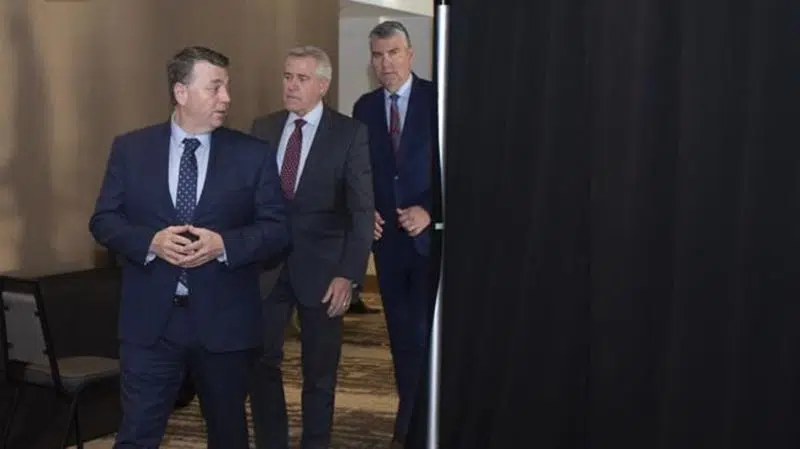
Labour, biz leaders urge federal-provincial common front on COVID-19 impact
OTTAWA — Canada’s largest labour organization and the group that bills itself as the voice of business in this country have set aside their differences to jointly confront the economic fallout from the rampaging novel coronavirus — and they’re hoping premiers can do the same when they meet with Prime Minister Justin Trudeau.
The heads of the Canadian Labour Congress and the Canadian Chamber of Commerce are trying to arrange a conference call with premiers ahead of Friday’s first ministers’ meeting to discuss the potentially devastating effect of the pandemic on workers and businesses as the global economy teeters on the brink of recession.
Both organizations have applauded Trudeau’s initial $1-billion response plan to the rapidly spreading virus, announced Wednesday, and CLC president Hassan Yussuff says they’re not far apart on what more needs to be done.
Yussuff concedes “it may seem unusual” for him to be collaborating with chamber president Perrin Beatty but, he says, “we also recognize it’s a moment for the country to come together.” And, he hopes, it’s an example for premiers, who’ll be arriving Thursday in Ottawa for a two-hour meeting with Trudeau and Indigenous leaders before closeting themselves for a daylong first ministers’ meeting Friday.
